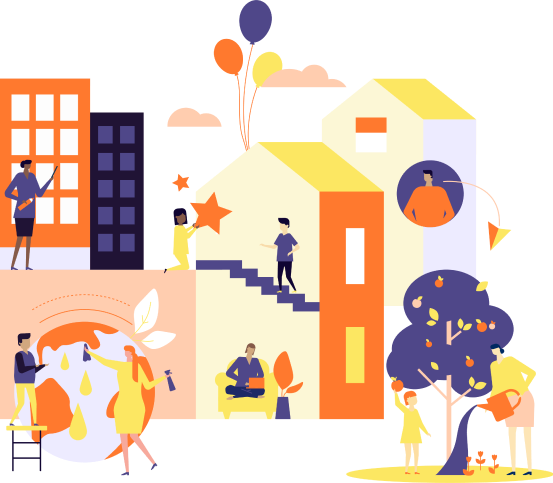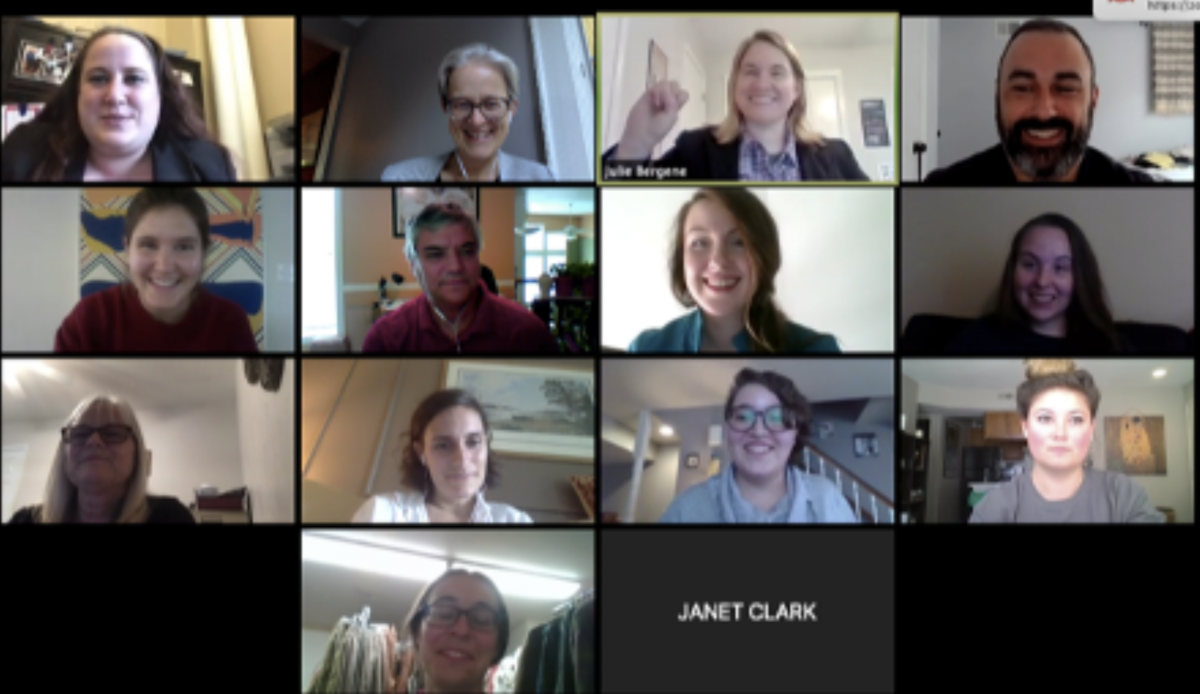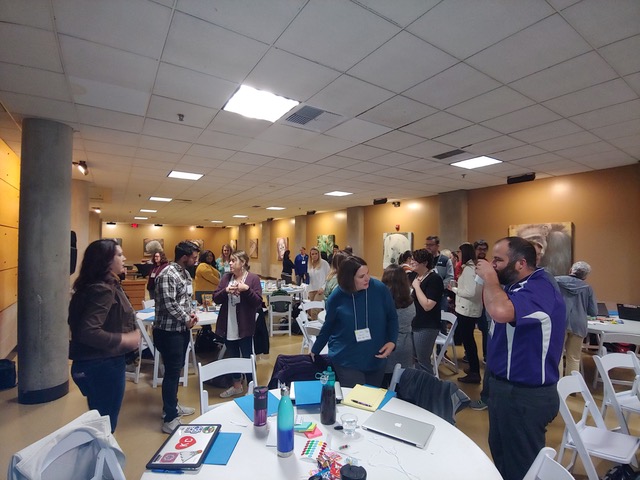
The most meaningful education does not come from textbooks or tools of the trade, but from a community of people with shared knowledge, experiences, and histories. So, why not cultivate a community of practice at the intersection of museums and schools?
Museums are place-based cultural incubators that inherently offer a package of resources, programming and objects that can educate young learners in a wide array of dimensions helping to meet state, local or core curriculum. And devoted to teaching, museum educators have the ability to enhance visitor experiences – such as children on school tours – in a manner that is rooted in shared values and meets individual learners’ needs.
Yet, even with this understanding, there have been logistical barriers in the way of building museum-school relationships––museums don’t know what teachers or students need, teachers don’t know what resources museums have, and high-quality learning needs to be made more accessible online.
One recently founded organization already working to remove these hurdles and to catalyze ecosystems of museums and educators across the country is The Learning Collaborative.
Founded in 2019 in Kansas City as a collaboration of social studies teachers and museum educators, The Learning Collaborative is a network of individuals and institutions who are committed to ensuring all young people grow up with the sense of self, purpose, connection and agency they need to succeed. By leveraging the resources and wisdom of local museums and cultural institutions, The Learning Collaborative nurtures a community of trust and mutual support that facilitates opportunities for continuous learning throughout and beyond the pandemic. At its core, it hopes to shift the question with which teachers enter museums from “What do you have that will convey my curriculum” to “How can you help my students grow as human beings, citizens and changemakers?”

The Learning Collaborative’s Community of Practice Strengthening Inquiry
Over the summer of 2020, The Learning Collaborative kicked into high gear and its community of teachers and museum educators worked together to design lesson plans and virtual experiences that would allow teachers to engage their students with some of the big challenging questions of our historic times through the lens of high-quality primary sources and artifacts from local museum collections. “We have realized how much value can be created for our students if we just build a community of trust and can-do creative collaboration”, says Emily Wegner, Social Studies Curriculum Coordinator in Kansas City and co-founder of the Collaborative. “When a teacher came to the Collaborative and asked for help understanding the historic roots of social determinants of health and COVID-19, the Johnson County Museum responded that we have a redlining map,” Mary McMurray, Director of the Johnson County Museum and Collaborative members said. “Teachers asked questions, the museum shared resources, and a compelling, engaging, and educational lesson plan was formed. It’s amazing what museum educators and classroom educators can accomplish when they work together.”
Learning-Science Based Civic Education
In today’s rapidly changing world, preparing young people to thrive as citizens means giving them the values, knowledge, skills and dispositions they will need to advance wellbeing for themselves, for others, for society and for the planet. In order for such learning to succeed, we will need to activate ecosystems that provide opportunities for deep learning, through experiences that leave lasting impressions. Recent advances in learning science allow us to understand how to provide such experiences, and how to sequence learning modules from the vast array of available resources, so that young people learn what they need to learn. The newly launched civic education platform Composer, a partner of The Learning Collaborative, has created a n online resource to support teachers in compiling learning units from the best available resources backed by learning science. Together, Composer and “TLC” are working to support museums in creating the most high-impact learning units to support student’s growth against key civic learning goals as defined by states and districts.

The incomparable power of place-based learning
Another output of recent research on how kids learn has been a renewed focus on the value of place-based learning. Learning that is in the community can be more learner-centric, inquiry-based, relevant, innovative and interdisciplinary than traditional classroom learning. With the focus of our society on ensuring employability in a tech-driven economy, STEM alliances have formed across the country to enable young people to engage with science, technology, engineering and math in a hands-on, real-world fashion within their communities. “It is high time that we translate these ecosystem models into the realm of civic learning”, says Fernande Raine, co-founder of the Collaborative and CEO of got history, the sponsoring organization of the network. “Classroom educators, museum educators, and, of course, students should be at the heart of that.”
Going forward, The Learning Collaborative aims to engage a nation-wide community of educators across institutions, co-creating new models for high-impact place-based learning experiences that are connected with civic learning goals. In partnership with existing networks, it aspires to bridge the world of museums and schools to accelerate a shift of our school systems towards being an incubator of changemakers. They are crafting a Playbook to support local teams of educators interested in creating their own local civic learning collaboratives. View the Playbook here.
Upcoming EdCom Event
Interested in joining?
The Learning Collaborative is actively seeking great models worth spreading, and individuals who want to be a part of reimagining how young people learn “humanity”, including history, art and literature.
Sign up for the newsletter here to keep informed about upcoming design workshops and events. Or let us know here if you are interested in starting a Learning Collaborative in your own region.
So, how can we – as a collective field – change our language to better reach teachers and students nationwide? How can museums gather more insight into what teachers need? How can museums transform the educational experiences of younger people to help them advance the wellbeing of themselves, our society, and planet?
The answer lies in a community of practice.
Learn more about The Learning Collaborative and join their network of educators for civic wellbeing.
Add new comment